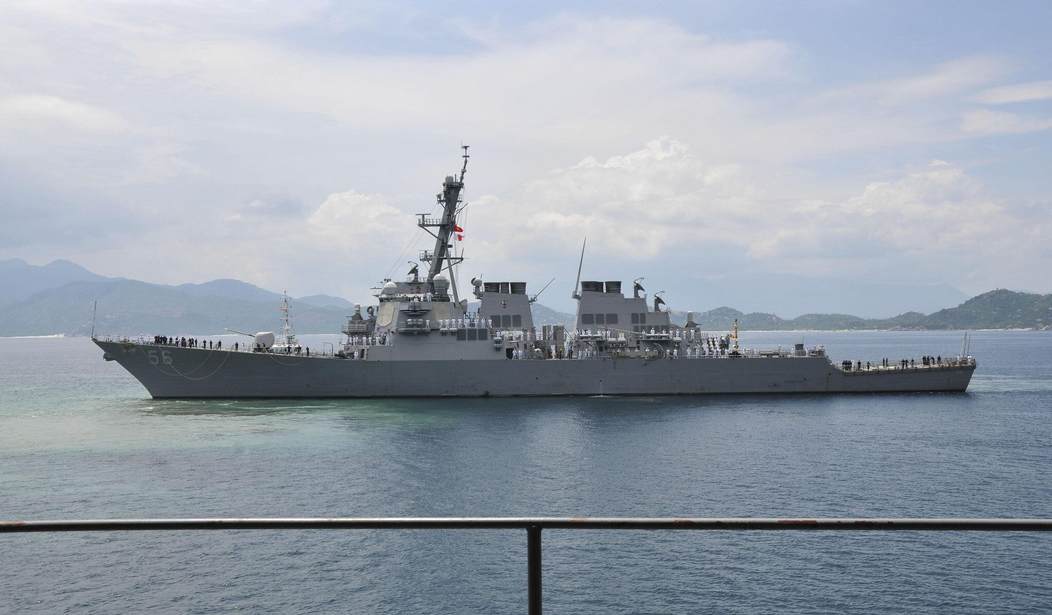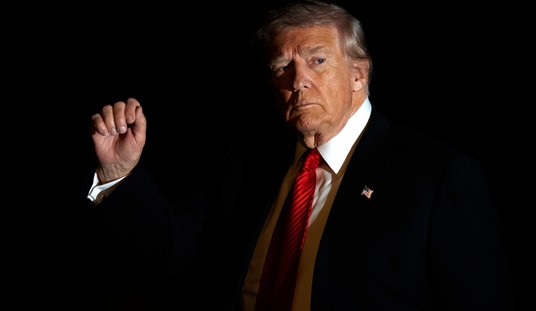Just hours ago, the Taliban held a victory parade in Kabul and some other Afghan cities to celebrate their victory over the United States and the client Afghan government of Ashraf Ghani.
Taliban throws victory parade with US military equipment https://t.co/iJPgEc6obP pic.twitter.com/vqVQpfLuHM
— New York Post (@nypost) September 1, 2021
Biden administration: Taliban won’t be able to operate US military vehicles/assets left in Kabul.
Taliban: Drives US military vehicles in parade.pic.twitter.com/dqz4I4Ne8z
— Katie Daviscourt🇺🇸 (@KatieDaviscourt) September 1, 2021
Taliban victory parade in Kandahar Afghanistan- brought to you by @JoeBiden and funded by American taxpayer dollars! 🤬pic.twitter.com/MAksPrl9yM
— DrConservaMom🇺🇸🐸🌐 (@ConservaMomUSA) September 1, 2021
Not only did it include our vehicles and equipment, it included mockery of the US Armed Forces
The Taliban held a 'Victory Parade' with U.S. military equipment, and in full U.S. military uniform.
Joe Biden’s incompetence knows no bounds. pic.twitter.com/hsXqgKThii
— Errol Webber (@ErrolWebber) September 1, 2021
and the Taliban’s “Wunderwaffen” or, as Google Translate tells me it is rendered in Pashto, معجزه وسله.
Let it sink in. This is Taliban on Afghan National Television broadcasting an official military parade with car bombs, suicide vests, rockets & barrel bombs on display which were used to kill thousands of innocent Afghan children, women & men over last two decades in Afghanistan. pic.twitter.com/mNTmdEQ2Xq
— Aditya Raj Kaul (@AdityaRajKaul) September 2, 2021
The temptation to wash our hands of this ill-thought-out adventure, and lash out and retaliate against the government the Taliban will establish and, by extension, the people of Afghanistan will be hard to resist. Not only did we spend twenty years and spend heaven knows how much money, as well as having several thousand young Americans suffer death or injury in that country, both directly and indirectly, on the war there, but when push came to shove, the massive and well-equipped Afghan army and air force, as well as the Afghan government, mostly melted away when it did not openly change sides (The Afghan Army Soldiers Didn’t Fight Because They Rejected What We Expected Them to Fight For).
For instance, if you watch the men in the suicide bomber parade, several of them are familiar with the marching step used by the Afghan Army. They didn’t get that skill hiding in caves. They got it in Afghan Army training camps. That Taliban pilot tooling through the skies over Kandahar with some mope dangling below his helicopter (see Taliban ‘Hang’ Man From Black Hawk Helicopter (Or Did They?))? He, yes, we can say with mathematical certainty that the pilot was a man, was trained by US military contractors at Shindand Air Base in Herat Province.
I suggest that before we go full kneejerk on this, we take a moment and a deep breath, and look further than the next week.
Assuming that we had national interests in Afghanistan that merited a 20-year ground war (I’m not saying we did, because I don’t think that was the case, (see Afghanistan Didn’t Have to End This Way, but We Made Sure It Did), those interests remain. We did have a national interest in how the former iteration of the Taliban conducted their affairs, that is, the harboring of terrorist training camps. That interest remains as valid today as it was in 2001.
The question before us is how we go about seeing to our interests. We have terminated one long war, and there is no reason to engage in another version of this war, this one diplomatic and economic, for the foreseeable future. Doubling down on stupid is, at least in my personal experience, rarely useful.
The fact that Afghanistan is controlled by a government that is not friendly–at the moment–is not a reason to act as if it does not exist or to engage in indefinite economic warfare. If you look at our own history, the Treaty of Paris giving us our independence was ratified in May 1784. By February 1785, the British government had appointed a “consul-general” to the United States (at the time, our elites believed that a republic should not have ambassadors). At the same time, John Adams was appointed “minister plenipotentiary” to represent the interests of the United States.
Former enemies don’t necessarily have to be future enemies. George Washington warned us against perpetual grievances against particular countries (which is why I think the way we’ve approached our relationship with Russia was in a pig-headed and fool-hardy way):
In the execution of such a plan, nothing is more essential than that permanent, inveterate antipathies against particular nations, and passionate attachments for others, should be excluded; and that, in place of them, just and amicable feelings towards all should be cultivated. The nation which indulges towards another a habitual hatred or a habitual fondness is in some degree a slave. It is a slave to its animosity or to its affection, either of which is sufficient to lead it astray from its duty and its interest. Antipathy in one nation against another disposes each more readily to offer insult and injury, to lay hold of slight causes of umbrage, and to be haughty and intractable, when accidental or trifling occasions of dispute occur. Hence, frequent collisions, obstinate, envenomed, and bloody contests. The nation, prompted by ill-will and resentment, sometimes impels to war the government, contrary to the best calculations of policy. The government sometimes participates in the national propensity, and adopts through passion what reason would reject; at other times it makes the animosity of the nation subservient to projects of hostility instigated by pride, ambition, and other sinister and pernicious motives. The peace often, sometimes perhaps the liberty, of nations, has been the victim.
If your taste doesn’t run to high-minded principles, maybe enlightened self-interest will serve instead. In the words of Lord Palmerston, “We have no eternal allies, and we have no perpetual enemies. Our interests are eternal and perpetual, and those interests it is our duty to follow.”
What interest might we have in Afghanistan that could be well-served by extending an olive branch to the new Taliban government? For one, we don’t want to see a return of training camps for al-Qaeda or like-minded groups. One of the major factions within the Taliban is the so-called Haqqani Network. This is despite the assertions of the profoundly dishonest State Department spokesman Ned Price to the contrary.
“The Taliban and Haqqani Network are separate entities,” @StateDept Spokesperson. 🤦🏻 pic.twitter.com/XpCTn68mfH
— Ihsanullah Tipu Mehsud (@IhsanTipu) August 27, 2021
1) @StateDeptSpox Ned Price is flat out wrong when he claimed the “Taliban and Haqqani Network are separate entities.” Both the Taliban and the Haqqanis deny this. See this @longwarjournal report from 2017. Details follow.https://t.co/67je7GXK1d
— Bill Roggio (@billroggio) August 27, 2021
Read the rest of Bill Roggio’s tweet below.
2) In 2012, Sirajuddin [Haqqani, now the group’s leader and the deputy emir of the Taliban] himself denied claims that the Haqqani Network is a separate entity, instead describing his followers as one of many “fronts” within the Taliban.
@mentions
3) Siraj Haqqani in 2012: ““There is no truth to such claims and rumors at all; they are part of the war of rumors by the enemies of Islam.”
@mentions
4) More from Siraj: “We are one of the fronts of the Islamic Emirate, and we do jihad in the cause of Allah under its banner, and we are proud of our pledge to its Emir [then Mullah Omar] and we carry out its orders and all its regulations.”
@mentions
5) Siraj continued: “All formations and the employment figures with us are by the Islamic Emirate, and we obey completely in good deeds the Emir of the Believers Mullah Muhammad Omar…”
@mentions
6) Siraj’s father, Jalaluddin Haqqani (who helped Osama bin Laden return to Afghanistan) said in 2008: “all the Mujahideen wage jihad under the leadership of the Ameer ul-Momineen Mullah Mohammed Omar Mujahid against the American invaders and their lackeys.”
@mentions
7) Jalaluddin Haqqani, continued: “There is no crisis (of division) under the names moderate or extremist among the Mujahideen. They all fight under a unified leadership.”
@mentions
8) Jalaluddin stated in 2008 that he was “a member of the High Council of the Islamic Emirate,” which is known as the Quetta Shura. Also known as the Taliban’s leadership council.Jalaluddin, in 2008, was a top leader within the Taliban.
@mentions
9) Mullah Sangeen Zadran, a senior Haqqani Network leader & the Taliban’s shadow governor of Paktika province, in 2012: “It [a supposed division between the Haqqani Network and the Taliban] is a rumor war that the broadcast stations of the enemy and its media centers are waging.”
@mentions
10) Sangeen, continued: ” “I assure you with all confidence that all the mujahideen of the Emirate are united under the leadership of the Emir of the Believers Mullah Mohammed Omar …”
@mentions
11) The Taliban has denied this as well. In September 2012, the Taliban released a statement on its Voice of Jihad website declaring that there is “no separate entity or network in Afghanistan by the name of Haqqani.”
@mentions
12) Voice of Jihad, continued, from 2012: “The honorable Mawlawi Jalaluddin Haqqani is a member of the Leadership Council of Islamic Emirate and is a close, loyal and trusted associate of the esteemed Amir-ul-Mumineen [leader of the faithful, Mullah Omar] …”
@mentions
13) VoJ Continued: “…and those Mujahideen entrusted under the command of his sons are in fact the heroic Mujahideen of [the] Islamic Emirate who like other Mujahideen strictly obey the esteemed Amir-ul-Mumineen and wage Jihad against the invaders throughout the country.”
@mentions
14) I could go on, but you no doubt see a pattern developing here. The Haqqanis say they are Taliban. The Taliban says the Haqqanis are Taliban. Jalaluddin was a top level Taliban leader. Sirajuddin is currently a deputy Taliban emir.
@mentions
15) This is a tedious and easily debunked falsehood propagated over the past decade as part of a craven attempt to separate the Haqqanis from the Taliban.In order to deal with Taliban, officials must delink the Taliban & Haqqanis, as the Haqqanis are in bed with Al Qaeda.
@mentions
16) But the ironic and dishonest part of the “Haqqanis aren’t Taliban” argument is that there are numerous other non-Haqqani Taliban that are in bed with the Taliban. Example: Sheikh Mohammed Aminullah
The proximate cause of our involvement in Afghanistan was the bases where the September 11 attacks were planned, and the terrorists recruited, were located there.
On the whole, it would be better if the Taliban could be persuaded that allowing terrorists to transit through Afghanistan, travel on official Afghan documents, and train in camps protected by the Taliban were extremely poor evolutionary strategies, rather than having US Special Operations Forces and airstrikes use Afghanistan as a SpecOps Six Flags. It would be better if we had a diplomatic presence to try to evacuate American citizens, permanent residents, and special immigration visa holders, rather than rely upon the word of the Taliban.
What else might be at stake?
Well, we know the Taliban were sustained throughout this war by Pakistan. In fact, if there is anyone other than the Taliban doing a little happy dance right now, it is the Pakistani ISI, because they successfully fought us to a standstill without provoking any retaliation against Pakistan. That, my friends, is what a competent intelligence service can do, instead of the work product of the cranks in the CIA.
Afghanistan was a vital Pakistani interest because an allied or compliant Afghanistan provides Pakistan with the depth to deploy its missiles and forces outside the range of Indian strikes, should war break out between those two adversaries (see George Washington’s warning) yet again. That mission has been accomplished. But there is another player:
BREAKING: Taliban Announces China Will Be Their Main Partner https://t.co/47WtQqab05
— Jack Posobiec 🇺🇸 (@JackPosobiec) September 2, 2021
China is on the cusp of a nasty little war with India over a disputed frontier. They fought it once before in 1962 (spoiler alert: India got thrashed), and they have constantly been skirmishing for the last four years. China is actively wooing/purchasing Pakistan (“We have established what you are, madam. We are now merely haggling over the price”).
China is already the primary user of the Pakistani port of Gwadar, a terminus of the China-Pakistan Economic Corridor. China working with Pakistan to freeze India’s attention makes India less able to resist China in their border dispute. China establishing significant influence in Afghanistan could also, when used in concert with genocide and ethnic cleansing, remove the Uighur problem for China.
Iran, for its part, was happy to bleed us in Afghanistan, but our exit creates a huge problem for Tehran:
As Western forces exit Afghanistan, Iran is watching with alarm. The resolution of one long-standing aim, the withdrawal of U.S. troops, is unleashing a separate challenge: what to do about the Taliban, another longtime problem for Iran, swiftly regaining power and territory next door.
The Afghan government said Friday that the Taliban had captured a key border crossing between Iran and Afghanistan.
Iran, ruled by Shiite clerics, and the Taliban, a radical Sunni movement, are at fundamental odds, and Iran has long bristled at the Taliban’s treatment of non-Sunni minorities.
Tehran fears both Taliban rule and Afghanistan returning to civil war, a destabilizing prospect likely to imperil the country’s ethnic Persian and Shiite communities, send more waves of Afghan refugees across the border and empower Sunni militancy in the region.
There is another problem that no one wants to talk about. About three percent of the adult population of Iran are addicted to heroin. A much larger percentage uses it. What does Afghanistan produce in abundance? You got it. Willing seller meet willing buyer. I’m not advocating that the US get involved in the drug trade, but I’d recommend not sending DEA agents and their contractors back.
Could we keep the pot stirring in Panjshir? Just to keep things interesting. (See Funding the Wrong Fighters in Panjshir Valley.)
Warning:
135 #Taliban killed by Resistance in Panjshir and 45 in #Kapisa /24 hr. 5k Commandos waiting in Panjshir armed with helis, humvees & heavy artillery. We are no ordinary Commandos. We are the ones that refused to surrender and will fight until death. Welcome to #Panjshir pic.twitter.com/NnfDVCpic0— Major Wazir Akbar Mohmand (@AkbarMohmand2) September 1, 2021
We have 20 years of personal contacts and accrued information. We know pressure points on a lot of people who will soon rise to prominence, because playing both sides of the street is a sport in that part of the world. We have intelligence networks that can be reactivated, assuming our defense secretary didn’t give their names to the Taliban (see and ). So we are well-positioned, with just a little humility, to continue to have some influence in Afghanistan.
The Biden bunch seems to be moving towards providing aid to the Taliban.
Did you hear the one about how the empire lost a war and then funneled money to the enemies who vanquished them?
WATCH: National Security Advisor lays out plans for providing aid to Taliban-led Afghanistanhttps://t.co/2YTYJIBMKX
— libby emmons (@libbyemmons) September 1, 2021
I think that’s dumb, mostly because the Biden bunch are incapable of coherent action. They are much more likely to spend money in prodigal sums to assuage what passes for their conscience and get nothing in return. But there is a way forward.
In 2016, the USS John McCain and USS Frank Cable paid a port call at Cam Rahn Bay, Vietnam. This was the first visit by a US man-o-war to Vietnam since 1972. The Vietnam War wound down in much the same way as Afghanistan. At least there, our 10-year effort to build a Vietnamese military resulted in a two-year lag between our flight and the fall of that government. And just as we seem poised to do now, we didn’t lift a trade embargo on Vietnam until 1994. Our first ambassador wasn’t posted there until 1997. This, despite Vietnam and China fighting a minor war (1979), followed by a decades-worth of armed encounters.
By indulging in a fit of pique over our self-inflicted loss in Vietnam, we deprived ourselves of the opportunity to account for American service members classified as Missing in Action. We were not able to fully take advantage of the open warfare between Vietnam and China. We missed the chance to prevent the Soviet Navy from using Vietnamese ports as forward-staging areas. In short, we got nothing during our 20 years of enmity, and we have gained a lot from our diplomatic and economic relations.
I’d be the last ever to suggest that we will be successful. Given the track record of our diplomacy, it would be rather safe to bet against that option. But if we had a reason for being there for 20 years, that reason still exists. And we owe it to those who served, fought, bled, and died in Afghanistan to see if maybe, just maybe, we can gain some of what we were fighting for after our disgraceful exit.













Join the conversation as a VIP Member